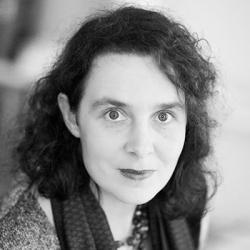Socialist Realism and the Real
Workshop
Socialist Realism and the Real
This workshop included lectures by Jérôme Bazin and Marielle Silhouette, as well as a reading workshop.
See Jérôme Bazin's relevant publication for online reading: https://dfk-paris.org/en/node/1361#/resolve/articles/23144 (first edition at https://perspectivia.net/receive/pnet_mods_00000023 (pdf)).
Lectures
Jérôme Bazin
“Realism, Reality and the Class Struggle in the GDR in the 1960s”
The East German painters discussed here are realist painters with close ties to Communism who were advocates of Socialist Realism, which was undergoing a radical redefinition in the 1960s following the exhibition Art of Socialist Countries held in Moscow in 1958-59. A comparison with other forms of aesthetic expression was fundamental to this redefining process. The issue of the interface with reality was of central concern in these encounters with past forms of expression, such as Cubism, Expressionism, Constructivism, as well as more contemporary stylistic directions, such as Pop Art, Installations and Performance Art. However, none of these artistic propositions fully satisfied the East German painters. Through a study of these artists' writings and texts by art critics, we endeavour to gain insight into what these artists were rejecting and what this tells us about their understanding of “reality”. We will continue this exploration by examining the artistic forms that these artists viewed as references – the Realist style of the Italian and French Communists, and a section of the Realist movement of the nineteenth century – and, above all, their own artistic production. The “real ”becomes the arena in which the “class struggle” is played out, where “social relationships” become visible. Antagonisms that are not visible in everyday life – even if they are its driving force – are fundamental to the idea of what is “real”. This artistic approach evokes Bertolt Brecht's definition of Realism as the art form “which reveals the causal complexes of society... making possible the concrete, while also making possible abstraction from it”. Our focus is therefore on gaining an understanding of this approach to the real as related to the experiences of these artists in the settings in which they produced their work, where they met with workers, who were often very different from the accepted image of members of the “working class”, as well as in relation to the materials employed in easel painting, which these artists considered as the most effective medium through which to enter reality.
See the relevant publication for online reading: https://dfk-paris.org/en/node/1361#/resolve/articles/23144 (first edition at https://perspectivia.net/receive/pnet_mods_00000023 (pdf)).
Marielle Silhouette
“Realism Confronted by History: Reflections on the Brecht-Lukács Debate”
Our analysis here is directed to the definition applied to the term “realism” in the conflict between Bertolt Brecht and Georg Lukács in the late 1930s and its aftermath in the 1950s in the GDR. Described in history as “The Expressionism Debate” (Expressionismusdebatte), this polemical debate challenged the Marxist principle of materialist aesthetics, notably in terms of its relationship with the avant-garde movements. With reference to the Soviet model, the procedures set out in the decree published on 23 April 1932 by the Central Committee of the Communist Party, and the inaugural speech by Andreï Jdanov at the first Soviet Writers' Congress in 1934, our framework for reflection is Socialist Realism and its juxtaposition of forms and content borrowed from Romanticism and Realism. The aim of a work of art to attain “concrete totality”, as advocated by Lukács, was one of the points of contention with Brecht and his defence of avant-garde movements. His definition of Realism, its processes and implications, will be examined in the context of the notion of exile, and subsequently of the nascent GDR.
Reading Workshop
Conceived by Clara Pacquet
- Karl Marx, Das Kapital, chap. “Der Fetischcharakter der Ware und sein Geheimnis ”(1883), in Karl Marx, Friedrich Engels, Gesamtausgabe (MEGA), t. VIII, Berlin, Dietz, 1989, p. 100-111
- Erhard John, Ästhetik kurz gefasst, Berlin, Henschelverlag, 1987
- Erhard John, Probleme der marxistisch-leninistischen Ästhetik, t. 1 “Kunst und Wirklichkeit”, t. 2 “Kunst und gesellschaftliches Leben”, Halle (Saale), VEB Max Niemeyer, 1967
- Interview by Gerhard Richter with Benjamin Buchloh, 1986, in Gerhard Richter, Text 1961 bis 2007. Schriften, Interviews, Briefe, ed. by Dietmar Elger and H. U. Obrist, Cologne, Walther König, 2008, p. 164-189 (translation in French: Gerhard Richter, Textes, textes réunis par Hans Ulrich Obrist, translation from German language by Catherine Métais Bürhendt, Dijon, Les presses du réel, 1999, p. 106-134)
Further texts
- Konrad Fiedler, “Über den Ursprung der künstlerischen Tätigkeit (1887)”, in Konrad Fiedler, Schriften zur Kunst, t. I, Munich, Fink, 1971, p. 300-338
- Arthur C. Danto, “Aesthetics and the Work of art”, in id., The Transfiguration of the Commonplace. A Philosophy of Art, Cambridge, Havard University Press, 1981, p. 90-114




